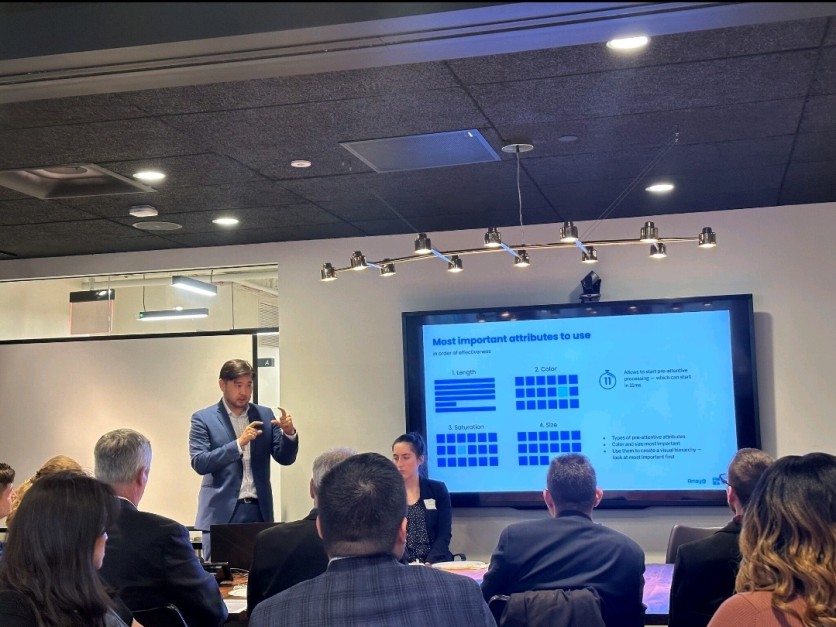
The business landscape is abuzz with a concept that's revolutionizing industries left, right, and center - Business Intelligence (BI). But, this game-changer, which has been guiding companies across industries toward better decision-making and strategic growth, is not just about numbers. It's a trio of data analysis, visualization, and decision-making support that, when combined, transform raw data into actionable insights and drive businesses forward.
That said, the journey to successful BI implementation is not without challenges. Some of the common challenges include choosing the right software, managing costs, addressing data quality issues, and integrating data from various source systems.
To address these setbacks adequately, Erdni Okonov, an exceptional strategist with a knack for data visualization and corporate finance, says that technical proficiency, a profound understanding of industry climate, and the ability to translate complex data into simple, understandable terms are a must.
"You have to be able to see numbers not as figures but as a window into the very soul of data. "Dashboards can become the nervous system of business, allowing for greater and faster control over all aspects of it," Okonov says. "If you can do that, the rewards will be incredible. You can uncover hidden patterns, reveal plenty of new opportunities, and navigate your way toward the future more confidently."
Okonov's passion for BI comes from his belief in its transformative potential. Having started his career as an oil and gas M&A investment banking, he views data as commodity, much like oil or gas. As he shares, "Data is a commodity and must be captured, stored and refined in order to become a useful product."
With such immense potential, it's clear that the influence of BI in the modern business landscape is not just significant-it's indispensable. Okonov's own expertise has left a huge footprint in various industries, from financial services, healthcare and consumer products.
When it comes to finance, his understanding of BI tools has translated into invaluable tips and advice and helped many corporations make better decisions and implement new and advanced business strategies.
Regarding healthcare, his mastery of BI has helped improve patient care, optimize treatments, and increase administrative efficiency.
"I helped to quantify and visualize all stripes of banking risks that allowed key decision makers at banks to see the dangers before they became problems. One example is where banking executives do not see the risk shown by the disaster at the Silicon Valley Bank."
One factor that underlines Okonov's work is his chase for the "perfect dashboard for each use case." This concept isn't about a flawless display of data but about chiseling away unnecessary information to reveal the essence beneath, much like a sculptor working with stone, each new dashboard must be better than the last.
This approach has revolutionized real-time performance tracking across a number of sectors. By effectively implementing Key Performance Indicators (KPI), Okonov has helped transform complicated metrics into visual information that's both accessible and practical.

"This allows businesses to monitor their operations much better, making data-driven decisions more efficient and accurate," Okonov says.
Looking toward the future, the ongoing evolution of BI certainly signals exciting innovations on the horizon. Despite the challenges associated with implementing BI, the opportunities it unlocks when successfully integrated are boundless. More than 50% of such implementations fail or have very limited success, as per industry statistics
In a world where data is king, Okonov is the master storyteller, turning numbers into narratives that propel businesses to unimaginable heights. With such experts coming up, the future of BI is set for further evolution.
As he says, "In business, adaptability is the key to survival, and with business intelligence, we not only see the world as it is but envision that it would be. Each industry, be it finance, healthcare, or consumer products, changes and evolves daily and tells a unique story, and our task is to decode that story and understand its nuances."
ⓒ 2025 TECHTIMES.com All rights reserved. Do not reproduce without permission.




